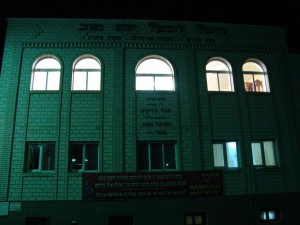Parshas Nitzavim-Vayeilech: How to Do Teshuvah and Why to Do Teshuvah
Rosh Hashanah is less than a week away and everyone seems to be swinging into action to celebrate. Even here in Adelaide, which has a relatively small Jewish population, there has been a flood of pre-Rosh Hashanah activity. The Jewish Community Services put on a pre-Rosh Hashanah lunch. I hosted a pre-Rosh Hashanah brunch. We’ll be hosting a melava malka to be followed by selichos. And of course Rosh Hashanah itself is beginning on Wednesday night. The clock is ticking!
It is not possible to approach this period of time without discussing the nature of teshuvah, or repentance. As the mashal (parable) goes, the King (G-d) is in the field, just waiting for us to approach Him. Now is the time we must work on repenting, not leave it until the last minute when we are being judged by Him on Rosh Hashanah or before the judgment is signed and sealed on Yom Kippur.
It is no coincidence that in this week’s parsha Moses speaks about the mitzvah of repentance. Other religions also feature ways to repent of sins. In some religions you do not need to do anything except confirm your beliefs. In others, you have to do horrible and painful things to yourself. Judaism is neither of these extremes.
In Judaism, in order to repent we must first leave the sin behind and commit to never do it again. We cannot repent if we continue to do the sin. Then, we must sincerely regret what we did. G-d will know if our regret is genuine. Then we must confess our sins before G-d. If you try this, you may be surprised to find this last step is actually the hardest. To actually say the words out loud can be the step that really makes your commitment feel true. Because it can be so difficult, this is why we have communal confessions on Yom Kippur. If we are saying the same words as everyone around us, they may be a bit easier to say. Judaism does require us to make a commitment and to do something difficult in confessing it, but it does not require anything physically painful or difficult.
Once we have stopped doing the sin and have truly repented, our past sins are erased or, in some cases, are even turned into mitzvot! Actually doing teshuvah is a mitzvah, in stopping doing sins we are instead doing mitzvot, and our past sins can even be turned into mitzvot. That is pretty amazing! Imagine having all those mitzvot weighing in on your side when you go before G-d for judgment this Rosh Hashanah. Now is the time to go to G-d, while He is accessible and waiting for us to come repent.
So what are you waiting for? The time for teshuvah is now!
Shabbat Shalom & Shana Tova.
Read more on Parshas Nitzavim-Vayelech: How the World Sees the Jews
Read more on Parshas Nitzavim: We Are All Responsible for Each Other
Read more on Parshas Vayelech: When G-d Hides His Face
Read More









